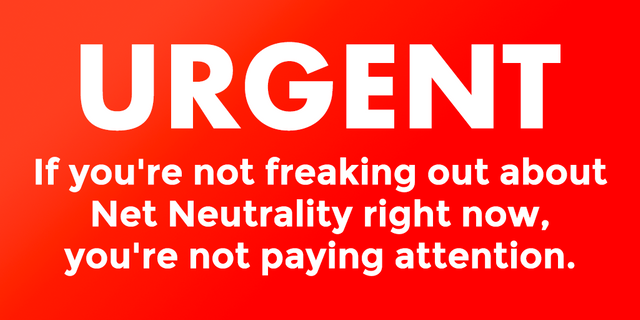NET NEUTRALITY.

Several Open Internet advocacy organisations have come out against the US Federal Communications Commission (FCC) Chairman Ajit Pai's plans to end net neutrality.
Pai unveiled on Tuesday his aim to repeal the FCC's 2015 Open Internet rules that protect net neutrality, stopping Internet service providers from blocking or throttling consumer access to web content.
The repeal will be voted on by three Republicans, who are generally against net neutrality, and two Democrats.
Pai told reporters that the FCC will no longer take a "heavy-handed" approach to regulating the business of Internet service providers (ISP). The end of the 2015 order will be "pro-competitive," Pai said.
But many fear that allowing ISPs such as Comcast, Verizon and AT&T – some of the largest companies in the US – to choose what their customers can see, and how quickly they can see it, will have the opposite effect.
"The FCC is proposing to trade the free and open Internet for a future where only the largest Internet, cable, and telephone companies will survive while every startup, small business, new innovators are crowded out, and the voices of nonprofits and ordinary individuals are suppressed," Corynne McSherry, the legal director of the Electronic Frontier Foundation (EFF), a nonprofit that works to protect civil liberties online, told Al Jazeera in an email.
Without net neutrality, ISPs could create Internet "fast lanes," wherein companies would pay to have their products or services more prominently featured. ISPs could also create "website packages," charging more money for access to more websites.
Evan Green, the Campaign Director of Fight for the Future, a pro-privacy, anti-censorship nonprofit, told Al Jazeera that ending net neutrality "will allow ISPs to block or throttle without accountability. They could choose to slow down or block apps or services that compete with ones they own".
Green gave the example of Comcast slowing down Netflix, one of the most popular video streaming services in the world, in favour of their own streaming services.
But the concerns expand beyond anti-competitive business practices. ISPs "could cave to pressure from the government to block websites that express dissenting viewpoints," Green said.
There are also concerns over FCC Chairman Pai's ties to the telecommuncations industry: Pai was an lawyer for Verizon, which has sued the FCC to end net neutrality, until 2003.
Pai has chosen "to champion the interests of the deep-pocketed industry that once employed him," Mark Stanley, Director of Communications and Operations at Demand Progress, a grassroots organising group, said in a statement delivered to Al Jazeera.
Groups in favour of net neutrality point to the widespread, bipartisan support for an open Internet.
A July poll conducted by Washington, DC-based Freedman Consulting firm found that 73 percent of Republicans, 80 percent of Democrats and 76 percent of independents want to keep the 2015 FCC rules that protect net neutrality.
SOURCE: Al Jazeera
What's your thoughts on this and how can we protect the internet?
Hi! I am a robot. I just upvoted you! I found similar content that readers might be interested in:
http://www.aljazeera.com/news/2017/11/digital-advocates-decry-plan-net-neutrality-171121200634860.html